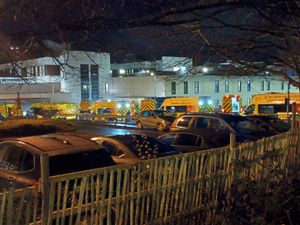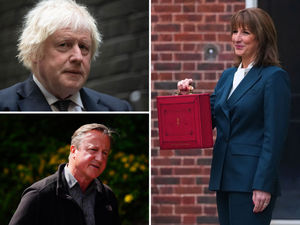Far fewer patients begin cancer treatment than pre-pandemic at Midland hospitals
Far fewer patients started treatment for cancer at hospital trusts across the Black Country in Staffordshire than before the coronavirus pandemic, new figures reveal.
Macmillan Cancer Support says the continued disruption to cancer treatment caused by Covid-19 is traumatising people six months into the pandemic – as a second wave threatens further setbacks.
NHS England data shows 178 patients started treatment for cancer at The Royal Wolverhampton NHS Trust in August – 48 fewer than the 226 to do so in August 2019.
A total of 128 patients started treatment in August at the Dudley Group NHS Foundation Trust – compared with 162 in the same month last year.
The data revealed 71 patients started their cancer treatment at the Sandwell and West Birmingham (SWB) NHS Trust in August, 59 fewer than the 130 in August 2019.
At the Walsall Healthcare NHS Trust 53 patients started treatment in August – compared with 80 in the same month last year.
And at the University Hospitals of North Midlands (UHNM) NHS Trust, which runs Stafford's County Hospital, 301 patients started treatment in August, 34 fewer than the 335 to do so 12 months previously.
Diane Wake, chief executive at the Dudley Group NHS Foundation Trust, said: "Our urgent cancer work has never stopped and as we continue to restore services to pre-pandemic levels we have been working hard to ensure patients can receive treatment in a Covid-safe environment. Quality of care, safety and patient experience continue to be our number one priority.
"It is important that anyone who has any symptoms sees their GP straight away. Nobody should be put off seeking help from the NHS when they need it, whether through NHS 111, their GP, a pharmacist or hospital."
A Royal Wolverhampton NHS spokesman said: "It is important to get medical help if you think you need it and keep any appointments or procedures you have booked – unless you are told not to go. We have strict infection control measures and social distancing in place to protect our patients and staff during the coronavirus pandemic.
"Please seek medical attention early if you are concerned something isn’t right."
Jenny Donovan, cancer services manager at SWB, said: “The trust saw a reduction of 70 per cent activity of urgent two week wait referrals during the early part of the pandemic. However, it is pleasing that during September the number of patients being screened for, and having cancer treatment is at 95 per cent of expected levels."
Acute
Dr Manjeet Shehmar, Walsall Healthcare NHS Trust's deputy medical director, said: “During the Covid pandemic response, in line with other NHS centres, Walsall completed fewer cancer treatments than the previous year.
“Walsall Healthcare has a restoration plan to work towards normal service levels as soon as is possible. We have measures in place to treat cancer patients away from Covid positive patients. The hospital is open for cancer treatments and it is very important that patients who are worried about cancer or have symptoms of any cancer should still access our services in the usual way via their GP.”
Paul Bytheway chief operating officer at UHNM said: “Just like the rest of the NHS, our number one priority for the last few months has been ensuring that all those who need urgent care, including urgent cancer care – not just those with coronavirus – have been able to get it when they need it.
“We took significant steps to ensure there was resource and capacity to deliver cancer services while managing resources to provide safe, quality care during a pandemic."
Across England, 20,200 patients started treatment in August – more than 5,500 fewer than 25,800 a year earlier.
But Sara Bainbridge, head of policy at Macmillan Cancer Support, said the latest figures were “extremely worrying”. She added: “Disruption to cancer diagnosis and treatment is having a traumatic impact on cancer patients’ lives.
“Cancer must not become the ‘forgotten C’ during this pandemic."
An NHS spokesman said: “Cancer clinicians worked hard to ensure that, despite the disruption and acute pressures from Covid, around 85 per cent of cancer treatments continued during the pandemic with over 246,000 people receiving treatment and more than 870,000 referred for checks since the start of March.
“Cancer and screening services are open, ready and able to receive patients so anyone who is concerned about a possible cancer symptom should contact their GP and come forward for a check.”


